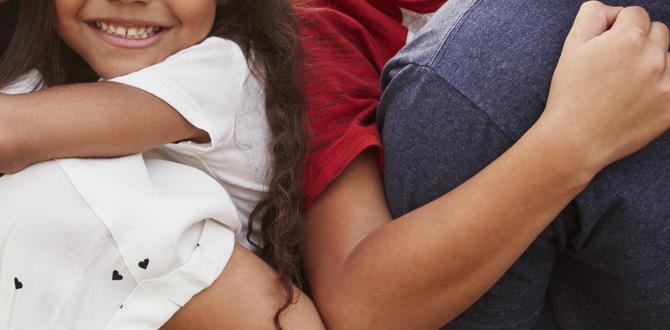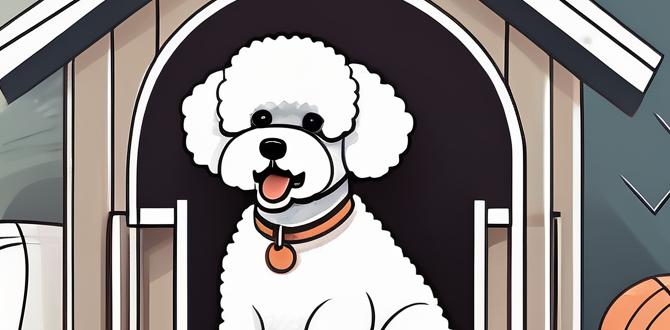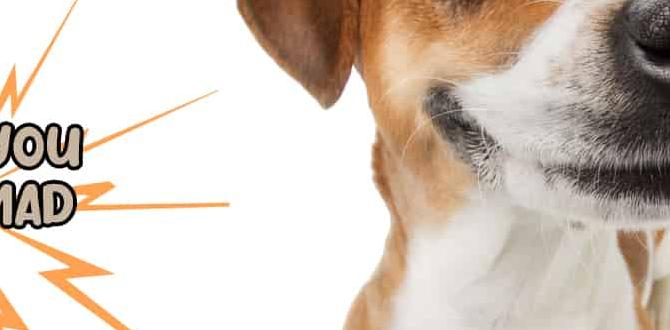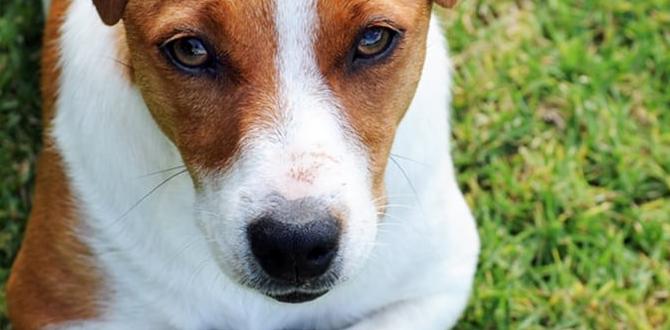When looking for a family pet, many people wonder which breeds are best. The Bichon Frise often comes up in these discussions. But what makes this fluffy dog a good choice for families?
Imagine coming home to a small, cheerful dog that jumps with joy. Bichon Frises are known for their playful nature. They love to be around kids and seem to enjoy every moment spent with them.
Did you know that Bichon Frises are also very friendly and social? They can get along with other pets, too. This breed often helps create a happy environment at home. Their gentle temperament makes them perfect for families of all sizes.
However, it’s essential to consider a few things before bringing one home. Do you have enough time for play and training? Bichon Frises need attention and care. If you can provide a loving home, this dog might be the right fit for your family.
In this article, we’ll explore the family suitability of the Bichon Frise in detail. You’ll learn not only about their playful nature but also tips for keeping them healthy and happy.
Family Suitability Of Bichon Frise: A Perfect Companion

Family Suitability of Bichon Frise
Bichon Frises are perfect family pets. They are friendly, playful, and love attention. These small dogs get along well with kids and other pets. Their fluffy coats may require regular grooming, but they shed very little, keeping homes tidy. Bichons also thrive on companionship, making them great for families who enjoy spending time together. Did you know they often bring smiles with their silly antics? Overall, Bichon Frises are delightful, loving additions to any family.Understanding the Bichon Frise Breed
Origin and history of the Bichon Frise. Physical characteristics and temperament traits.The Bichon Frise is a cheerful little dog with a history that dates back to the Mediterranean in the 13th century. These fluffy companions were once used by sailors as good luck charms—talk about a tail of fortune! They have a soft, curly coat and weigh around 10-20 pounds, making them the ultimate lap dogs. With their playful temperament, they love to spread joy and snuggles everywhere they go.
| Characteristic | Details |
|---|---|
| Origin | Mediterranean region, dating back to the 13th century |
| Weight | 10-20 pounds |
| Temperament | Playful, friendly, and eager to please |
This breed is known for its fun-loving and social nature. They are great with kids and get along wonderfully with other pets. Because of their happy disposition, Bichon Frises are like little clouds of happiness that can brighten anyone’s day!
Temperament and Behavior in Family Settings
Affectionate nature and social behavior. Energy levels and playfulness.Bichon Frises are known for their loving and friendly nature. They thrive on human interaction, showering their families with affection. These dogs love to cuddle and play. Their social behavior makes them great companions for kids and adults alike.
They are energetic and playful. A Bichon Frise enjoys games, walks, and active playtime. Their fun spirit keeps families entertained.
- Affectionate and eager to please
- Social, loves being around people
- High energy, always ready to play
Are Bichon Frises good family pets?
Yes, Bichon Frises are great family pets! They are friendly, playful, and love to bond with family members.
Size and Space Requirements
Ideal living conditions for a Bichon Frise. Adaptability to small apartments vs. larger homes.Bichon Frises are small and fluffy, making them perfect for many living spaces. They do well in cozy apartments. They need a little room to play and explore. These dogs are adaptable and can also thrive in larger homes with yards. Here are some key points:
- Size: They weigh around 10 to 20 pounds.
- Space: They need a few safe spots to move.
- Exercise: Daily walks can fit in small places.
So, whether you live in a tiny apartment or a big house, a Bichon Frise can make a great companion!
What makes Bichon Frises good for small apartments?
They are friendly and adjust easily. They don’t need a big yard to be happy. They love to snuggle and play indoors! This makes them ideal for city dwellers.
Compatibility with Children and Other Pets
Interaction with children of different ages. Social dynamics with other household pets.Bichon Frises are friendly dogs. They bond well with children and can play nicely with them. They enjoy games and cuddles, making them great for kids of all ages. With little ones, it’s good to teach gentle play. Bichons are also patient and loving.
When it comes to other pets, they usually fit in well. They are playful and curious with cats and dogs. However, proper introductions can help. Here are some key points:
- Friendly nature promotes bonding.
- Great for families with kids.
- Socializes well with other pets.
Do Bichon Frises get along with other pets?
Yes, Bichon Frises tend to socialize well with other pets. They enjoy playing and often become friends.
Training and Socialization Needs
Basic training tips for families. Importance of early socialization.Training your Bichon Frise at home can be fun and rewarding. Start with simple commands like “sit” or “stay.” Use rewards like treats or praise for good behavior. Remember, short sessions work best! Early socialization is important too. Expose your puppy to different people, pets, and places. This builds confidence and reduces fear. Social dogs are happier and more well-behaved.
What are some basic training tips for families with Bichon Frises?
Use positive reinforcement, keep training sessions short, and practice regularly.
Why is early socialization important for Bichon Frises?
- Helps them become friendly and confident.
- Reduces fear of new experiences.
- Encourages good behavior around people and other pets.
Grooming and Maintenance Considerations
Grooming needs and schedules. Potential allergies and health considerations for families.The adorable Bichon Frise has a fluffy coat that needs regular grooming. Brush them at least two to three times a week to keep their fur looking fresh and tangle-free. A good bath every month can help them smell great. Watch for sneezes or itching since they may have allergies. If someone in your family is allergic to pet dander, a Bichon might not be the best fit. Think of grooming like giving them a spa day—only funnier because they may try to escape the bath!
| Grooming Task | Frequency |
|---|---|
| Brushing | 2-3 times a week |
| Bathing | Once a month |
Health Considerations Specific to Families
Common health issues in Bichon Frises. Managing health in a family environment.Bichon Frises are adorable little furballs, but they do face some common health issues. They may suffer from allergies or skin problems, requiring regular vet check-ups. Managing their health in a family setting can be a breeze with some planning. For example, introducing a routine for meals and exercise can keep them happy and healthy. Remember, a happy dog makes a happy family!
| Health Issue | Management Tips |
|---|---|
| Allergies | Regular vet visits and a good diet can help. |
| Skin Problems | Keep their coat clean and well-groomed. |
| Dental Issues | Brush their teeth and give dental treats. |
Staying on top of your Bichon’s health ensures they bring joy to your family for years to come. Who wouldn’t want a cheerful pup that shares cuddles and goes on adventures?
Costs and Commitment of Bichon Frise Ownership
Initial costs for purchase/adoption. Ongoing expenses related to healthcare and grooming.Owning a Bichon Frise can be fun, but it does come with costs. First, you’ll need to budget for their initial purchase or adoption. This usually ranges from $500 to $1,500. After that, there are ongoing expenses to consider, like healthcare and grooming. Your yearly grooming costs can add up to $600 or more. Vet visits and vaccinations might be another $300 each year. Knowing these costs helps you prepare for a happy pet life!
What are the initial and ongoing costs of a Bichon Frise?
The initial cost for a Bichon Frise is about $500 to $1,500. Ongoing yearly expenses, including grooming and healthcare, can total $900 or more.
Here’s a quick cost breakdown:
- Initial purchase/adoption: $500 – $1,500
- Yearly grooming: $600+
- Yearly vet care: $300+
Success Stories: Families with Bichon Frise
Testimonials from Bichon Frise families. Positive impacts on family life and dynamics.Many families share how their lives changed for the better with a Bichon Frise. These fluffy dogs bring joy and laughter into homes. Families say their Bichons help them bond and create happy memories. Kids and parents play together, often laughing at their dog’s silly antics. A Bichon Frise truly brightens the day! Here are some happy thoughts from real families:
- “Our Bichon makes every day feel special!”
- “Life is more fun and full of love with our puppy!”
- “He’s a great listener and a loving friend!”
How do Bichon Frise dogs affect family life?
The presence of a Bichon Frise can strengthen family ties. They promote playfulness and teamwork. Happy pets create happy homes. Families often find joy in caring for them together.
Conclusion
In conclusion, Bichon Frises are great family pets. They are friendly, playful, and love being around kids. Their small size makes them perfect for any home. If you want a fun and loving companion, consider adopting one. We encourage you to learn more about their care and training to help make the best choice for your family!FAQs
What Are The Temperament Traits Of A Bichon Frise That Make Them Suitable For Families With Children?Bichon Frises are friendly and happy dogs. They love to play with kids and be part of the family. They’re also gentle, so they won’t hurt little ones. Their cheerful nature makes everyone smile. Plus, they are nice and don’t usually bark a lot!
How Do Bichon Frises Interact With Other Pets In A Household, And What Should Families Consider Before Adopting One?Bichon Frises are usually friendly and get along well with other pets. They like to play and can share their toys. It’s important to make sure other pets are gentle too. Before bringing a Bichon home, think about how much time you can spend with them. They need love, attention, and regular grooming to stay happy and healthy.
What Grooming And Maintenance Needs Do Bichon Frises Have, And How Can Families Accommodate These Requirements?Bichon Frises need regular grooming because their hair grows like ours. You should brush them at least a few times a week to keep their coat nice and fluffy. They also need haircuts every couple of months. We can take them to a pet groomer or do it ourselves with proper tools. Regular baths will help keep them clean and happy, so bath time is important too!
Are Bichon Frises Prone To Any Specific Health Issues That Families Should Be Aware Of Before Bringing One Into Their Home?Yes, Bichon Frises can have some health problems. They might get allergies, skin issues, or eye troubles. You should check their teeth regularly, too. It’s important to take them to the vet for check-ups. This way, we can keep our furry friends happy and healthy!
What Training Methods Are Most Effective For Bichon Frises, And How Can Families Ensure A Well-Behaved Pet?Bichon Frises learn best with positive reinforcement. This means you should give them treats or praise when they do something right. Keep training sessions short and fun. Use simple commands like “sit” and “stay.” To ensure a well-behaved pet, be consistent and patient. Always reward good behavior and avoid yelling.
Meet Elyse Colburn, the devoted canine companion and storyteller behind the enchanting world of “Tales, Tails, and Adventures Unleashed.” A passionate dog enthusiast with a heart full of paw prints, Elyse Colburn shares heartwarming tales and insightful adventures, celebrating the joy, loyalty, and endless antics that make every dog a true hero. Join Elyse Colburn on this tail-wagging journey, where every post is a love letter to our four-legged friends.






